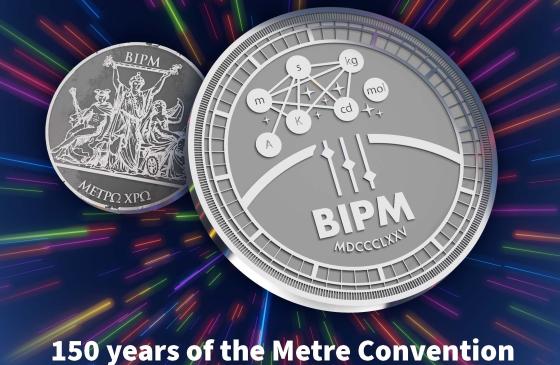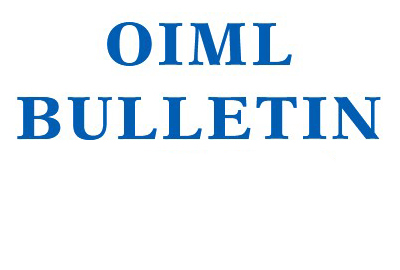2015 Chengdu Seminar

Chengdu, P.R. China
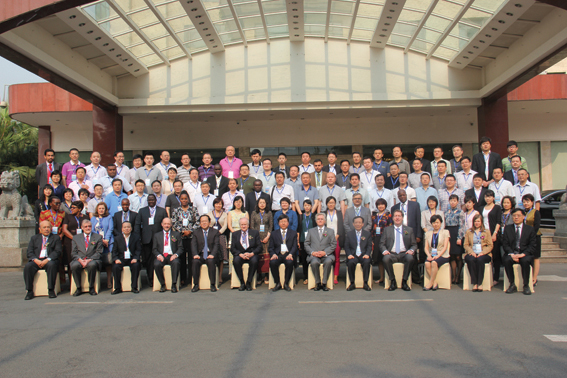
Delegates attending the OIML Seminar "Metrology in Daily Life" in Chengdu, P.R. China
At the 49th CIML Meeting in Auckland, New Zealand in October 2014, the OIML advisory group on countries and economies with emerging metrology systems, chaired by Mr. Pu Changcheng of the P.R. China, announced that it intended to organize a seminar on the theme of Metrology in daily life in the coming year. This event was held in Chengdu, P.R. China on 14–15 May 2015.
The event was publicized by means of e-mails addressed to all Member States and Corresponding Members, and through the OIML website. The recipients of the OIML Award for Excellent Achievements in Legal Metrology in Developing Countries were also individually invited to attend so they could share with other attendees the experiences which had led to their receiving the Award.
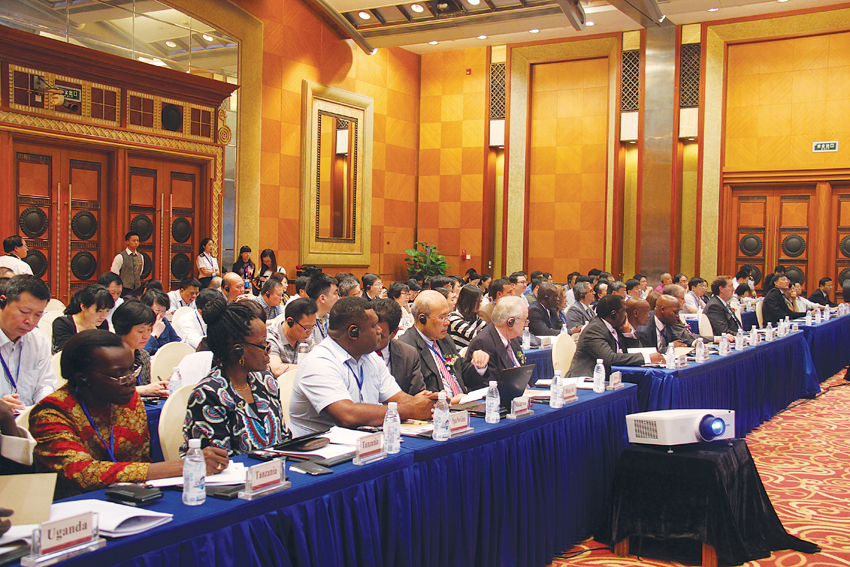
Full room for one of the plenary sessions
Rather than being aimed at “developing countries” this seminar targeted “countries and economies with emerging metrology systems”. By addressing this wider target group that includes countries which may not themselves be considered to be developing countries, but which do not have a modern operational metrology system in place, the OIML is able to broaden the impact of its work in this area. A significant number of the OIML’s members fall into this group, as do most non-members.
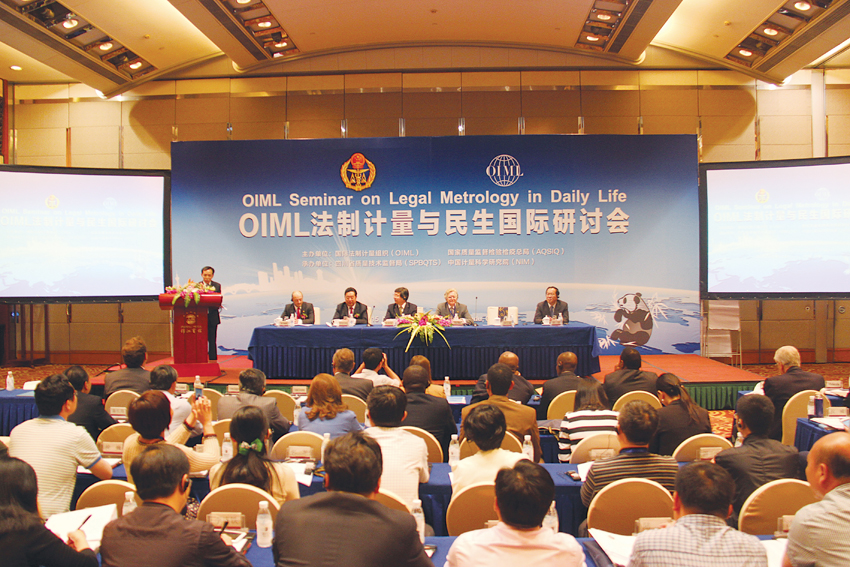
The Seminar was attended by about 100 delegates
The Seminar was structured into two parts: a needs assessment and a preliminary planning of activities.
For the needs assessment, each participant was asked to prepare a country report. A template was provided prior to the Seminar that included questions about areas requiring improvements and national action plans. On the first day, all the participants presented their country reports in a plenary session.
Based on the reports, a group of experts identified common problems and challenges for the CEEMS community. The group included the CIML President Peter Mason, former CIML Presidents Manfred Kochsiek and Alan Johnston, BIML Assistant Director Ian Dunmill, Guo Su from AQSIQ on behalf of the Chair of the Advisory Group Pu Changcheng, and Anna Cypionka as a representative of the PTB’s Technical Cooperation Department. The following three challenges were identified as being most urgent for CEEMS:
- How can a legal metrology authority develop its capabilities, including the recruitment, training and retention of competent staff?
- How can the efficiency of a legal metrology authority be improved by cooperation with private partners, e.g. by outsourcing to reliable service providers?
- How can a legal metrology authority improve its type approval procedures, e.g. by cooperating with other authorities in a region?
The morning of the second day was dedicated to a discussion of the above topics, to create a common understanding of the challenges between the CEEMS participants and the OIML leadership and to develop joint solutions and targeted actions.
The group of participants was quite large – about 20 international participants from 15 different countries plus around 80 participants from China – so to give everybody a chance to contribute to the discussions a participatory workshop approach was chosen. The process was facilitated by Guo Su for the Chinese participants and Anna Cypionka for the international participants.
The participants were split into three English-speaking and three Chinese-speaking groups according to their interest in the above topics. Each group discussed one of the topics. The English-speaking groups were accompanied and advised by the OIML experts.

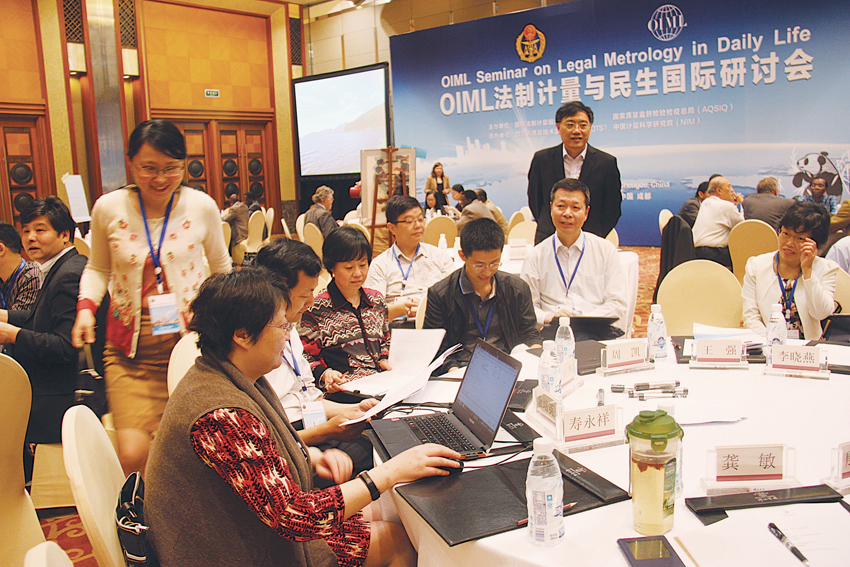
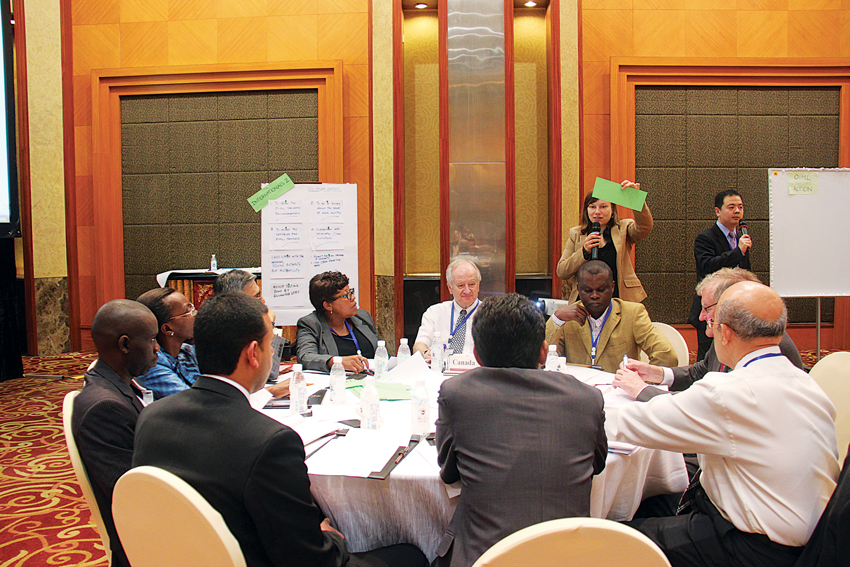
The participants were split into three English-speaking and
three Chinese-speaking groups to discuss the challenges facing CEEMS
In the beginning, each group chose a presenter to report the results in the plenary session at the end of the morning.
The groups started out with a general discussion of the topic they had chosen, including possible solutions for the CEEMS community. The main discussion points and ideas were documented on cards that were collected on pin boards. Such a visualization helped to keep everybody on track in a group discussion. Those who more easily perceived visual information were thus better able to follow the course of the discussion. Visualization also facilitated the presentation and documentation of the results of the subsequent group work.
The second group work session was dedicated to the planning of concrete actions. The participants continued in the same groups, developing actions addressing the challenges they had discussed in the first session.
To give the groups some framework to work with, CIML President Peter Mason had suggested that the list of proposed actions should be organized into three categories:
- actions for the OIML,
- activities the OIML could contribute to, and
- activities the OIML might encourage others to undertake.
Again, ideas from the groups were documented on cards and then collected on one big board for all six groups jointly. Participants were asked to assign each action to one of the three categories mentioned above according to what they thought the OIML’s role in taking the action should be. At the end of the morning, the presenter of each group reported back to the plenary and answered questions from the other groups.
After the sessions and discussions, the whole group was taken to Chengdu Heping Integrated Farmers’ Market, to Chengdu Fangcao Community Health Service Center and to the State Grid Sichuan Electric Power Corporation Metering Center for technical visits.
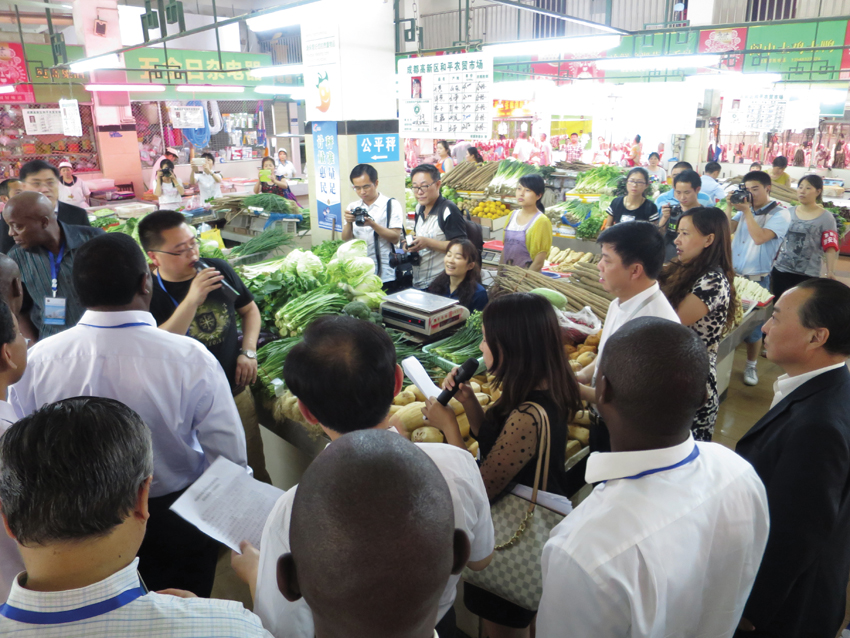
Visit to Chengdu Heping Integrated Farmers’ Market,
Heping Community, Gaoxin District, Chengdu
An OIML Seminar Report is currently under preparation and will be published on the OIML website as soon as possible.
The ideas put forward by the Seminar participants open many avenues for future activities in each of the areas mentioned above. They will now be analyzed and used to prepare the agenda for another CEEMS seminar to be held in conjunction with the 50th CIML Meeting in Arcachon, France in October 2015. It is hoped that together, these two seminars will enable the OIML to establish strategies for cooperation with other international organizations as well as concrete actions for the future which will be of real benefit to all countries and economies with emerging metrology systems.
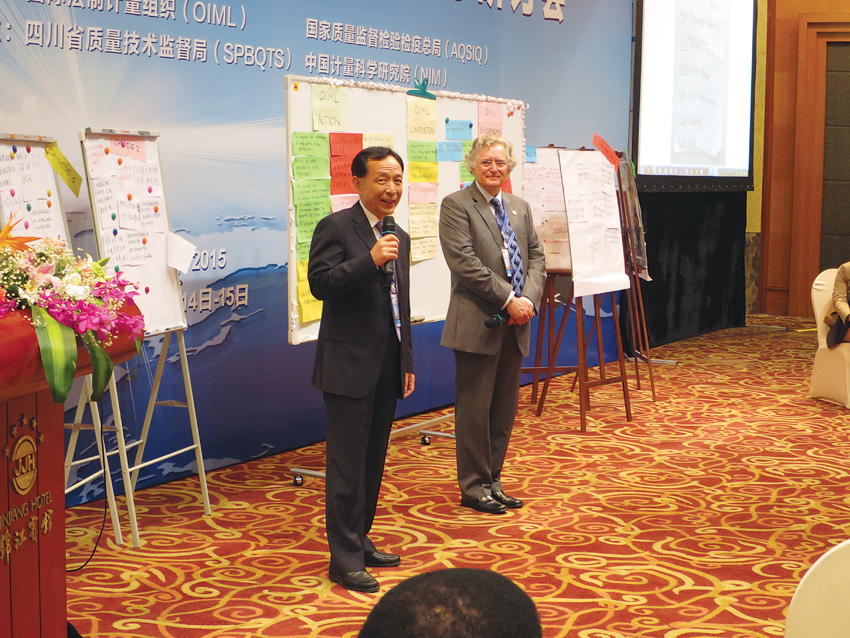
Pu Changcheng and Peter Mason conclude the Seminar
For more information on the Seminar, click here.

